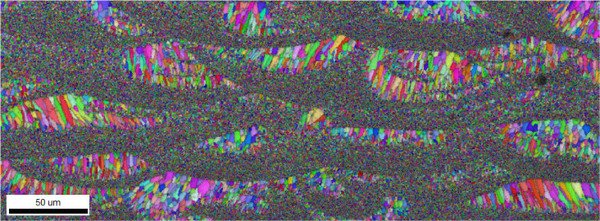A wide range of steels is nowadays used in Additive Manufacturing (AM). The different matrix microstructure components and phases such as austenite, ferrite, and martensite as well as the various precipitation phases such as intermetallic precipitates and carbides generally equip steels with a huge variability in microstructure and properties.


